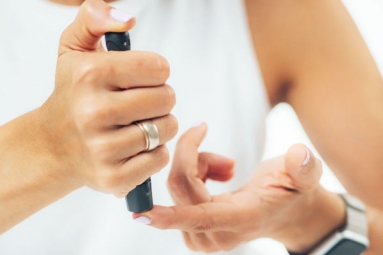
(Image source from: Canva.com)
While being alone and feeling lonely can harm your mental well-being, a new study suggests they are also a danger to your physical health. If you spend a lot of time by yourself, you may not only feel sad but also encounter health issues, such as getting diabetes. Research shared at ENDO 2025, the annual gathering of the Endocrine Society in San Francisco, California, has indicated that those who are socially isolated are more likely to develop diabetes and high blood sugar later on. Psychologists and mental health specialists worldwide have noticed a growing number of people experiencing loneliness and its negative effects since the peak of the COVID-19 pandemic, particularly affecting older individuals. Medical researchers have identified a link between these people and chronic conditions like diabetes, which occurs when the body either doesn’t make enough insulin or struggles to use the insulin it does create.
When insulin isn't used effectively, it can lead to high levels of blood sugar, which can result in severe health issues such as heart disease, kidney damage, and even vision problems. High blood pressure can quietly harm you if not treated over time. Hypertension is a significant contributor to long-lasting health conditions. "After the COVID-19 pandemic, social isolation and loneliness have increasingly been seen as serious health risks. Our results highlight how essential it is for doctors to view social isolation as a vital social factor affecting health, especially in older patients,” stated lead researcher Samiya Khan, M.
D., from the Keck School of Medicine at the University of Southern California.
"These results are particularly important because of the rapidly increasing older population in the United States and around the world, along with the common issue of social isolation and loneliness in older adults". Using information from the National Health and Nutrition Examination Survey (NHANES) collected between 2003 and 2008, researchers reviewed the health backgrounds and nutritional status of adults and students in the United States. Among the 3,833 adults aged 60 to 84 included in the study, it was found that those who were socially isolated had a 34 percent higher chance of having diabetes and a 75 percent increased risk of poor blood sugar control.
“These results highlight the significance of social ties for the health of older adults. Doctors should consider social isolation as a possible risk factor for diabetes and high blood sugar in elderly patients,” Khan remarked, sounding the alarm on loneliness.



















